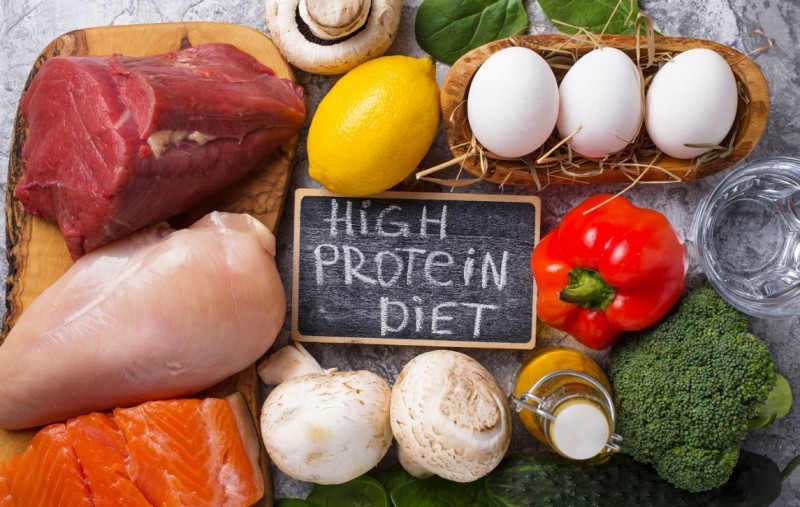
In an era where social media and the internet dominate our lives, seeking health and fitness advice online has become commonplace. One popular trend that has gained traction is the high-protein diet for weight and fat loss. While the idea of shedding those extra pounds by consuming more protein may sound appealing, it's essential to approach such diets with caution and a thorough understanding of our body's individual needs. Blindly following a high-protein diet without considering one's unique requirements can have detrimental effects on health, potentially outweighing the benefits. This article explores the potential pitfalls of adopting high-protein diets for weight loss without proper guidance and insight.
The Allure of High-Protein Diets
High-protein diets have gained popularity for their perceived effectiveness in weight loss and muscle gain. The fundamental principle behind these diets is that protein has a higher thermic effect compared to carbohydrates and fats. This means that the body expends more energy to digest and process protein-rich foods, thereby boosting metabolism and aiding in calorie burning. Additionally, protein is essential for muscle repair and growth, making it a favored choice among fitness enthusiasts.
Social media and the internet have played a pivotal role in disseminating information about high-protein diets. Influencers, celebrities, and fitness gurus often promote these diets, showcasing their seemingly impressive results. However, what often remains hidden behind the glossy posts are the potential dangers of adopting such diets without proper understanding and professional guidance.
The Importance of Individualization
One of the most significant downsides of blindly following a high-protein diet is the lack of individualization. Each person's nutritional requirements are unique, influenced by factors such as age, sex, activity level, metabolic rate, and existing health conditions. Relying solely on generic online advice neglects these crucial differences and can lead to a range of health issues.
The misconception that "more protein is better" can be particularly harmful. Excess protein intake may strain the kidneys and liver, as these organs are responsible for processing and eliminating nitrogen waste products generated during protein metabolism. Overloading these organs with excess protein can potentially lead to kidney and liver complications over time.
The Risks of Imbalanced Nutrition
Adopting a high-protein diet often involves cutting back on other macronutrients, such as carbohydrates and fats. While protein is indeed important, an imbalanced diet can lead to a host of nutritional deficiencies. Carbohydrates, for instance, provide the body with readily available energy, support brain function, and promote gut health through the consumption of fiber-rich foods.
Reducing carbohydrate intake can result in feelings of fatigue, irritability, and even mental fogginess—commonly referred to as the "low-carb flu." Moreover, neglecting healthy fats can impact hormone production, cellular function, and overall well-being. By focusing solely on protein intake while ignoring other essential nutrients, individuals risk compromising their health in the pursuit of weight loss.
The Potential for Disordered Eating
Another concerning aspect of blindly following high-protein diets is the potential for triggering disordered eating behaviors. The restrictive nature of these diets, coupled with societal pressures to achieve a certain body image, can lead to an unhealthy obsession with food and weight. Orthorexia nervosa, a condition characterized by an obsession with healthy eating, can emerge when individuals fixate on consuming only "clean" and protein-rich foods, while excluding other food groups.
Moreover, constantly monitoring protein intake and meticulously planning meals can take a toll on mental well-being. Food should be a source of enjoyment and sustenance, not a cause of stress and anxiety. The focus on protein quantity rather than overall nutritional quality can foster an unhealthy relationship with food and undermine one's holistic well-being.
The Importance of Professional Guidance
It cannot be stressed enough that making drastic dietary changes without proper guidance from qualified professionals can lead to adverse health outcomes. While social media and the internet offer a wealth of information, they lack the personalization and nuance required for crafting a sustainable and healthy diet plan. Registered dietitians and nutritionists are trained to evaluate individual needs and tailor dietary recommendations accordingly.
Before embarking on any dietary regimen, it's crucial to consult a healthcare provider or a registered dietitian. These experts can assess your current health status, activity level, and dietary preferences to design a plan that aligns with your goals while safeguarding your overall health. A well-rounded approach that considers all aspects of nutrition, rather than focusing solely on protein intake, is vital for long-term success.
In the age of digital information, it's easy to fall prey to the allure of high-protein diets for weight and fat loss. However, blindly adopting such diets without a deep understanding of one's individual needs and without seeking professional guidance can lead to adverse health consequences. The dangers of imbalanced nutrition, potential for disordered eating, and the risks of overburdening the body's organs cannot be overlooked. Promoting a holistic approach to nutrition—one that values individualization, balanced macronutrient intake, and mental well-being—is essential for achieving sustainable and long-lasting results. While the internet can serve as a source of inspiration, it should never replace the expertise of healthcare professionals who can guide us towards healthier choices without compromising our overall health.
Global Summit on Traditional Drugs: Bridging Ancient and Modern Practices, says Mandaviya
Embrace Besan: 5 Creative Ways to Boost Your Diabetes Diet
Is Chicken Good For Diabetics? Exploring the Diabetes-Friendly Benefits of Chicken Consumption